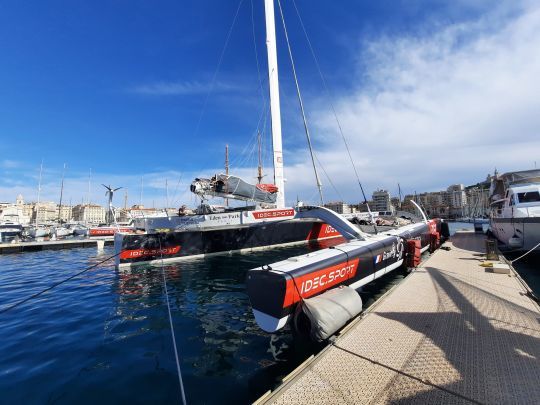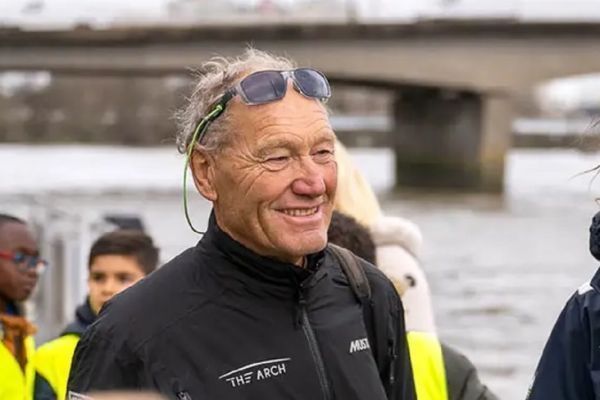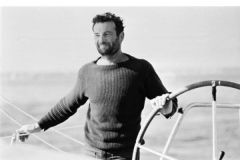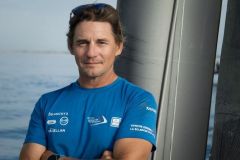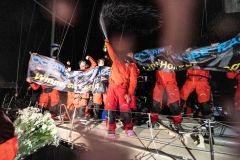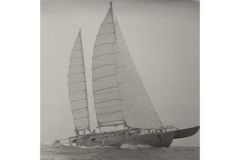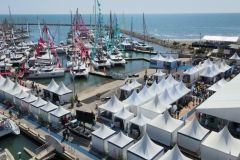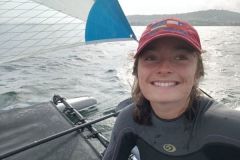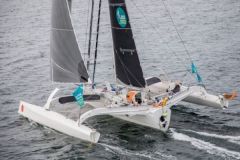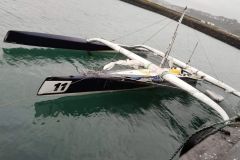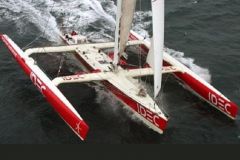In Marseille, 4 e stage of the tour of Europe initiated within the framework of The Arch project, we exchanged with Francis Joyon before his departure to Ajaccio. Between a round table and a visit of the trimaran, Francis shared with us his vision on the measures to adopt in order to limit our environmental impact, on land and at sea.
Francis, how was The Arch project born?
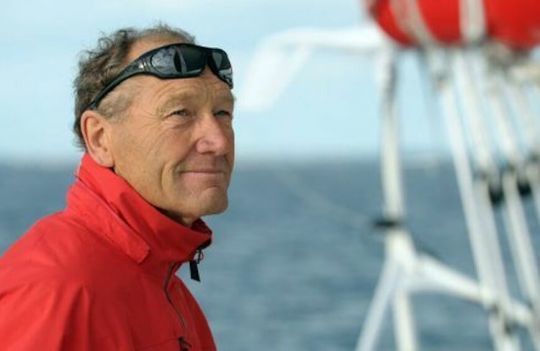
The project was born in 2017 under the impetus of Damien Grimont, whom I know well because he was my teammate 30 years ago. For a long time, Damien wanted to set up a committed operation with this environmental will. I thought it was a very good project, and one that could give meaning to the essential pro-ecology approach that we must develop. The idea is to delay the fatal deadline after which we will have polluted our planet too much.
In concrete terms, what are the actions taken?
The Arch has set the objective of giving visibility to concrete solutions that contribute to the ecological transition of economic sectors. To achieve this, the organization launched a European call for projects to select 100 innovative solutions in five different sectors: city-housing, food-health, energy, industry-digital and mobility. At each European stage, a selection of 10 winning solutions is presented.
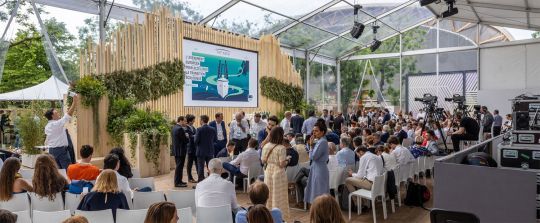
Are any of the solutions presented applicable to our boats?
A majority of the solutions presented are intended for land use and are less directly related to the marine world. In the latest innovations that were presented, two caught my attention:
- an AI-based software solution, is a tool that automatically analyzes and detects leaks in water networks, thus limiting drinking water losses.
- another, which was presented in Nantes, is based on the recycling of plastic bottles.
I only mention two of them, but many others are very interesting. And there are many more to discover during the next stages of our tour of Europe.
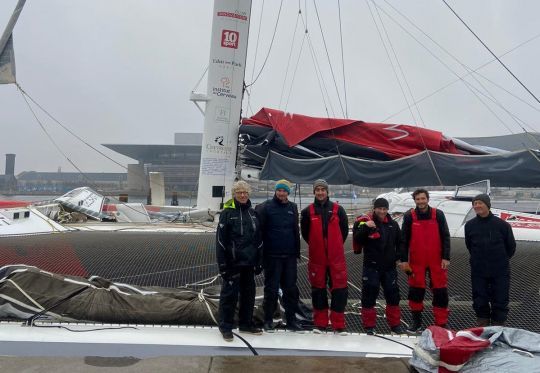
You recently spoke with the Wave collective, which campaigns for a decarbonization of ocean racing
I had long discussions with Adrien Hardy in particular, whom I supported to the extent of my limited means. I appreciated his approach to reduce the impact of ocean racing on our environment. I am very interested in the use of flax fiber to replace fiberglass. This new way of building boats is particularly interesting to me.
With my brother, we were passionate about organic farming and gardening. We've had it in our hearts since we were 15 years old. In a utopian ideal, we should race on one-designs built with plantation wood and assembled with a non toxic glue.
How to limit the carbon footprint of ocean racing?
The great way to limit your carbon footprint is to have very small budgets. With low financial means, you learn how to salvage and do-it-yourself. We adopt a different logic from the big stables. We limit our travel.
The only new boat I ever built, an ORMA trimaran 29 years ago, was fiberglass instead of carbon. On paper, it was a little less efficient than its carbon counterparts, but I was happy because we limited its environmental impact.
For several years on this Idec trimaran, which was launched in 2006, we have led some great campaigns and some nice victories, with the equivalent budget of a high-performance Class 40.
What would be the specifications of the ideal boat to set out again to attack the Jules Verne?
The ideal boat to start again must already be built. I don't plan to leave with a new multihull, it wouldn't make sense in the current context. I am only interested in existing boats. Two multihulls may be available and could correspond to a round-the-world program. One has already won the Jules Verne, and the other has won the Route du Rhum.
